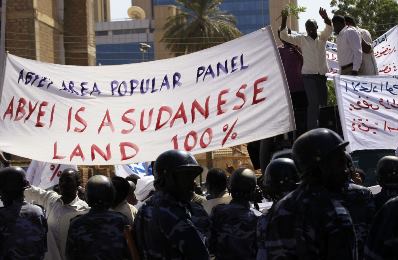Sudan reiterates sovereignty over disputed Abyei region
May 18, 2018 (KHARTOUM) – Sudan’s permanent envoy to the United Nations Omer Dahab called on South Sudan government to engage with Khartoum and the African Union seriously to speed up the formation of administrative institutions in the disputed Abyei region.

He said all partners should exert concerted efforts to promote security and stability in Abyei, pointing to the need to refrain from taking any actions that may destabilize the situation in the region.
On Wednesday, the United Nations Security Council unanimously adopted the resolution extending the mandate of UNISFA until 15 May next year, saying the current situation is a serious threat to international peace.
Ownership of Abyei, a border region disputed by Sudan and South Sudan, remained contentious after the world’s youngest nation split from Sudan in 2011.
There is no joint administration between Sudan and South Sudan, as the Ngok Dinka refuse the formation of Abyei Area Administration and the Legislative Council. Instead, they call to hold a referendum without the Sudanese pastoralist Misseriya.
Now there are two committees one for the Misseriya appointed by the Sudanese government and another for the Ngok Dinka appointed by Juba government.
On 27 June 2011, the Security Council, by its resolution 1990, responded to the urgent situation in Abyei by establishing the UNISFA.
UNISFA’s establishment came after Sudan’s government and the Sudan People’s Liberation Movement (SPLM) reached an agreement in Addis Ababa, Ethiopia, to demilitarise Abyei and let Ethiopian troops monitor the area.
The Comprehensive Peace Agreement (CPA) provides that the contested territory remains part of the north until the organisation of a referendum determines its fate.
The difference over who will participate in the referendum prevents the two countries from holding the agreed referendum.
However, the Dinka Ngok organised a unilateral referendum from 27to 29 October 2013 to say they want to join the Republic of South Sudan.
Khartoum, Juba, the African Union and the international community refused to recognise the outcome of the vote.
(ST)
